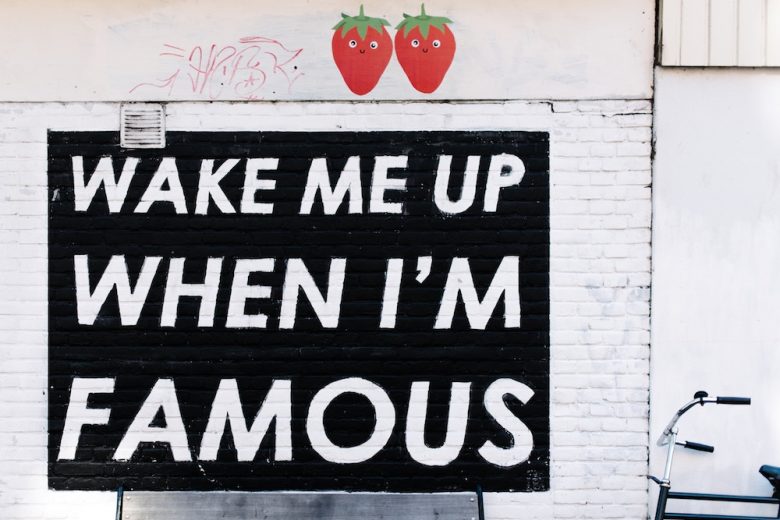Working with influencers – the dos and don’ts for small businesses
Want to increase awareness of your brand with the help of social media influencers or bloggers? Here are some dos and don’ts every small business needs to read first.
Working with influencers is an increasingly popular PR strategy for brands. But how do small businesses, with equally small budgets, make the most of the promotional opportunities offered by social media influencers and bloggers behind the camera?
How can they avoid some of the big pitfalls that can come with engaging with influencers, and ensure they get maximum publicity (and return) for their investment?
To help you navigate this new and tricky world, Sally Bunkham, founder of mumsback.com shares 14 tips for small businesses (and five for influencers who want to work with them) and some real life experiences from business owners – including some cautionary takes!
The good, bad and ugly of working with influencers
My area of expertise is gifts for new mums. As a small business I’m always looking to promote my products, and one of the most accessible ways to do this is via social media.
Having said that, it’s HARD. It’s such a crowded market out there. There are so many amazingly creative folk building brilliant brands. Sometimes it can feel like you are shouting into the abyss.
A way to get noticed is to get others to shout about you. And obviously the best way to do this is to get the most popular people with similar audiences to do the shouting. Doing this authentically is the key here. You want the ‘influencer’ (I’m pretty sure the influencers themselves often hate that term as much as the rest of us!) to genuinely love your product and to be speaking from the heart.
I know for many negotiating this can be a total minefield. For me, Instagram can make me feel like I did in high school. It’s all about who you know – the cliques. Who’s gang are you in? It can leave a bad taste in my mouth.
HOWEVER, it can also be a fab place of support and community. Here are some of the things I, and some others have learnt along the way.
Further below I’ll also share some experiences and tips from small businesses and influencers on some things that have worked well… and not so well! Think of it as the good, bad and ugly of working with influencers.
14 tips to help small brands work with influencers
Are are 14 tips to help small brands work with influencers.
1) Be authentic on social media
Don’t just follow and interact with people because you want them to shout about you. It has to be natural. Only engage with the folk you genuinely enjoy doing so with. An attempt to create a relationship just for the purposes of them shouting about you can be smelt a mile off. Just don’t do it.
2) Don’t just send products uninvited and expect to be featured
This approach CAN work but you must remember that no one owes you anything. Molly Gunn of Selfish Mother recently shared her experience of this in her Insta stories. She gets so many products it is overwhelming.
She obviously wants to share as many as possible especially as she understands the plight of the small business owner, but she also has a business to run, a family to look after, the every day stresses of life etc. I’m sure she’s not alone here.
I think it’s much better to agree these things in advance and check if people have the capacity, after you have built a relationship with them.
3) Look for smaller influencers with great engagement
Going after who you believe the big influencers are might not be a sensible approach if you are looking for exposure for gifted products or services. They are likely to be busy supporting paid work and may not have time to support gifted campaigns.
I think it’s much more sensible to look for influencers with slightly smaller followers with excellent engagement, but in your niche area (who you really love), and build a relationship from there.
4) Set expectations before you do anything else
If you are hoping they will share your products in their stories AND on their grid, for example, then work this out before hand. Work out what is possible and what both sides think is fair and reasonable and set this out in writing so it can be referred to later on. Otherwise it is easy for expectations not to be met and for both parties to feel resentful.
5) Make sure you’re being reasonable
Are you sending them something worth £10 and asking them for multiple shout outs? Is that really fair?! Think about the offering and what is reasonable.
6) Understand that influencers have bills to pay and jobs to manage
Yes you may be gifting an item, but that item ain’t gonna pay the gas bill. They need cold hard cash for that. If you can’t pay them that cash, they’re probably not going to be as keen. Obviously influencers should still follow through on anything they’ve pre-arranged, but it’s important to remember.
7) Check it’s a good fit
People love to promote stuff they genuinely love. So don’t ask an influencer who you know has twin babies to test a product for teenagers, for example. Make sure it’s appropriate.
8) Give influencers creative freedom and set deadlines
Georgie St Clair, visual artist and content creator says it’s fine to ask to see the post before they share it. And be clear about your expectations and set guidelines (eg no profanity, mentioning other brands, etc!).
9) Find ways to measure success
Georgie also recommends asking them to post at similar times if you’re running a campaign, so you can measure metrics. Give them unique discount codes or hashtags too, so you can measure the success of your campaign.
10) Research influencers before getting in touch
Have you researched your chosen influencer properly, and are you contacting them appropriately?
Most influencers don’t just have one platform. They’re likely to have their own website which will no doubt give information on how to work with them. Read it. Understand it and do as it asks.
You are more than likely able to find their email address there. This is often a better means of communication. DMs on Insta and FB messengers are more likely to get lost or remain unread.
11) Be absolutely sure that an influencer is the way to go
Would, for example, a targeted ad campaign be better? Hannah Deane of littleshout.org says the question to ask are “Do I want an influencer purely to get in front of the people who follow them?” If the answer is yes, then she runs a paid ad instead, as you can target these people anyway and it will cost you a lot less.
Perhaps, however, your product or service needs to be endorsed. It may be new or unusual, so people won’t buy unless someone they trust says it’s good. If that’s the case then she researches researching the right influencers for her clients.
12) Stick to the ASA guidelines
If you do go down the influencer route, be sure that they adhere to ASA (Advertising Standards Authority) guidelines. They’re really cracking down on ensuring ads and gifted posts are tagged correctly.
13) Don’t offer a ‘free’ product in return for exposure
Caro Davies, founder of The Twinkle Diaries says that good bloggers and influencers work really hard to create their content and can often charge quite high fees.
Offering a product in lieu of payment would be better than saying ‘free’! And offering actual payment will generally get an even more positive reaction! She also suggests offering products for prizes – competitions are often a great way of creating a buzz.
14) Don’t be swayed by numbers
Caro Davies says, when it comes to Instagram, don’t be swayed by high follower numbers – followers can be bought! Engagement is a much better yardstick.
Having said that, engagement can also be inflated by disingenuous means. So do a little bit of research and choose your influencer on the quality of their images and content, rather than the numbers.
And here are five tips to help influencers work with small brands
What if you’re an influencer? How can you best work with brands? Here are five tips to help you.
1) Be understanding
It’s really hard to know how to negotiate deals like this for businesses. I know I was nervous as HELL before I sent my first message asking if an influencer would be interested in receiving one of my hampers (luckily she was incredibly nice).
“What if they hate me? What if they hate my product? What if they share my stuff saying how awful they think it is?”…all these ridiculous things went through my head.
For us (me at least) it feels like being back at school and asking the most popular kid if I can sit with them at lunch. A lot feels at steak. Obviously if you can’t do it (and they’ve been reasonable with their request) then inform them you can’t, but be kind about it.
2) Be clear about what you will and won’t do
If you are happy to work with them make it crystal clear from the off what you are prepared to do. For example you are happy to receive that one product in exchange for two mentions in your stories over two days.
3) Treat gifted items with respect
I know that gifted items aren’t going to pay your bills, but understand that gifted products aren’t free for the small business to send either.
I once agreed with one influencer (after she built a relationship with me) that she would feature a hamper that I gifted her. I made it clear before sending that I was after a grid mention and a mention in her stories too, which she agreed.
In the end she only featured me in her stories saying that actually, she had to “prioritise paid work” on her grid and that she thought “mentions in stories were more effective anyway”. That hamper had cost me a fair old whack in products and postage. And on my small business budget it was significant. It didn’t feel very fair of her to move the goalposts once she’d received the product.
4) Make it clear you don’t accept gifted products
If you aren’t prepared to accept gifted products, consider placing a small statement with your contact details explaining this. Or perhaps explaining that you will only consider them if pre arranged, to save you the faff or having to say this retrospectively.
5) Use an auto-responder
If you are receiving lots of requests from brands wanting exposure, consider an auto response email reply explaining how you like to work. This should help manage any expectations and hopefully save you the job of having to say it multiple times.
Real life experiences from small businesses, influencers and experts
So what is it like working with an influencer if you’re a small brand? Or, on the flip side, working with small businesses if you’re an influencer or blogger?
The very first influencer I worked with was amazing. By pre-arrangement via email I sent her a Deluxe Mum’s Back hamper in exchange for promotion in her stories and on her grid. She told me from the off what she was able to do and even suggested a fantastic competition that would engage her audience (who were definitely my potential customer base).
I had been following her for a while and really loved her style. She considerably upped my instagram followers and got me a good few sales. It was a brilliant experience.
However another business owner, sadly, didn’t have such a good experience working with influencers. She sent me two of her bad experiences. Here’s one:
“I had a woman contact me a few months back. She said she loved my products and wondered if I would be interested in collaborating with her.
She had boy/girl twins under 1 and a fairly big following so I thought it would provide me with good exposure to my target market. She sent me some screen shots of some muslins she liked and I sent them out to her.
Fast forward a month and I hadn’t heard from her or seen anything about me pop up on her page. I messaged her and she said she would post a photo soon. I was under the impression that she would be posting one image per item so I asked whether the second image would follow shortly after.
She told me that she would only be posting one and that I had misunderstood/misinterpreted the information she had given me. She said she only posts two photos if people pay her to and asked me rather rudely whether a post and stories to 16k followers wasn’t good enough for me or something?
I told her yes that was good enough but to date she hadn’t posted anything. She assured me she would. That was about three months ago now and I have never heard anything back from her. It made me wonder how many other businesses she had contacted to ask for free things.”
Georgie St Clair, who has a following of nearly 50,000 on Instagram says:
“My main advice is don’t concentrate too much about following. Engagement is much more important, so get their stats on engagement and reach, demographics etc. Micro influencers have smaller (under 10,000) followings but are often more engaged so do consider them.
I think where brands go wrong is they contact influencers out of the blue having had no previous contact with them before. That’s fine if they are willing to pay for a post but if they want you to share for free, it’s a bit cheeky! If a brand likes an influencer, strike up a relationship by commenting on their posts for a while. Giving them shout outs in stories etc.”
Digital marketing specialist, Jodie Humphries says:
“I worked as a blogger outreach manager for a global company and in my experience you really need to do your research. It’s all about finding the right blogger for your brand. If they love what you do they will be much more likely to go the extra mile for you.
Bloggers and influencers sometimes get a bad press, but their time is valuable to them. You might think they are being pushy asking about your budget, but it takes time to craft a post/ shoot and edit a video/ come to an event. Journalists get paid to do this, bloggers don’t. So choose them wisely where there is mutual love on both sides, then it’s a fantastic and fair opportunity for both.”
This blog was written by Sally Bunkham, founder of mumsback.com; luxury gifts for mums focussing on the yummy stuff denied in pregnancy. £1 from every hamper sold goes to mental health charity PANDAS Foundation.
Photo by Alice Donovan Rouse










